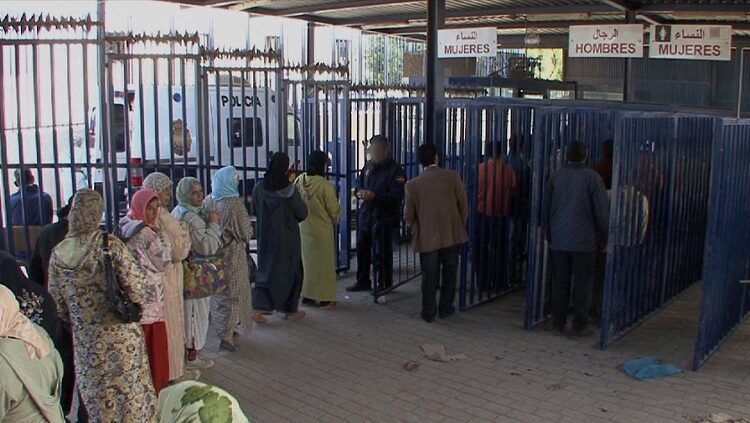Eduardo González
The Spanish and Moroccan delegations held yesterday in Madrid the first negotiation on the next customs regime in Ceuta and Melilla, which concluded without immediate results and will be resumed “in the coming days in Morocco”.
According to diplomatic sources informed The Diplomat, the two delegations addressed at the headquarters of the Ministry of Foreign Affairs “all aspects of the next customs regime in Ceuta and Melilla”, within the framework of “normalization, gradualism and good neighborliness agreed in the Joint Declaration” signed by the President of the Government, Pedro Sánchez, and the King of Morocco, Mohamed VI, in the meeting that both held last April 7 in Rabat to stage the “new stage” of bilateral relations.
The same sources assured that the talks will continue “in the coming days in Morocco” and that “all the points of the road map agreed on April 7 are still being developed and the working groups are meeting with the aim of resolving the practical aspects”. The meeting was attended by directors general of the Ministries of Foreign Affairs, Interior and Finance, as in other negotiations with Morocco, such as the Strait Crossing Operation (OPE).
The meeting took place a few days after the general director of Customs of Morocco, Nabyl Lakhdar, assured in an interview to the Moroccan weekly TelQuel that, at the moment, there are not “the right geographical conditions” for the installation of customs at the border crossings of Ceuta and Melilla. The crossings of Ceuta and Melilla are “small corridors” and, therefore, “many dozens of hectares would be needed to build visit and control areas”, he warned. Therefore, “we do not have the necessary surface area for this project,” he insisted. “These border posts will only be open to travelers and not to commercial operations,” he concluded, although hours later, in view of the commotion created by his interview, he qualified his words by saying that it would indeed be possible to establish these customs infrastructures with the two cities
The roadmap agreed last April 7 in Rabat between Pedro Sanchez and Mohamed VI -as contained in the Joint Declaration signed by Spain and Morocco-, indicates that “the full normalization of the movement of people and goods will be restored in an orderly manner, including the appropriate devices of customs and people control at land and maritime level”. In addition, at the press conference following his meeting with Mohamed VI, Sanchez assured that the two leaders had agreed to reinforce “the normalized reestablishment of the land border posts with Melilla and Ceuta for the passage of goods and people”.
On the other hand, the Spanish and Moroccan Ministers of Foreign Affairs, José Manuel Albares and Nasser Bourita, took last April 11 in Marrakech the “political decision” to reopen the border crossings within the framework of the road map, after remaining closed for more than two years because of the pandemic and the diplomatic crisis. The opening of the “crossings and customs” will apply both to “people and goods”, Albares said. On May 17, the El Tarajal crossing in Ceuta and the Beni Enzar crossing in Melilla were reopened “gradually”.
Therefore, both the forecasts of the roadmap and the various statements of Sanchez and Albares allowed to expect the reestablishment of the Melilla customs, which was unilaterally closed by Morocco in August 2018 after a century and a half of operation (apparently, without space problems), and the establishment of a new customs in Ceuta, which has never existed and whose creation could imply – as Moncloa wishes and Moroccan diplomacy fears – the implicit recognition of Spanish sovereignty over the two autonomous cities.
Pedro Sánchez will appear today before the plenary session of the Congress, at the request of the Popular Group, to “explain the new partnership for the 21st century that he established during his visit to Rabat and the consequences that this has caused in the relationship with Algeria”. Spain and Morocco experienced between mid-2021 and the beginning of this year a very serious diplomatic crisis because of the humanitarian reception in a hospital in Saragossa of the leader of the Polisario Front, Brahim Ghali. The crisis was finally resolved in mid-March, when Pedro Sánchez sent a letter to Mohamed VI in which he expressed, surprisingly, his support for the Moroccan autonomy plan for Western Sahara.






